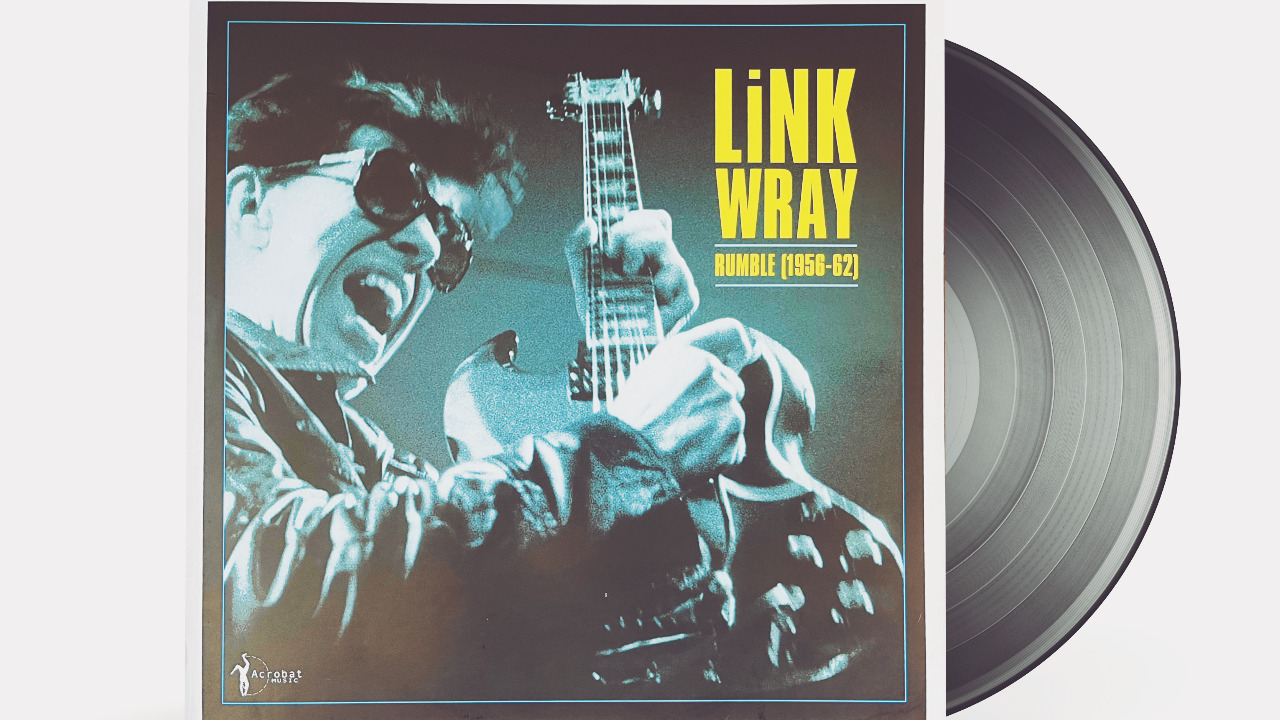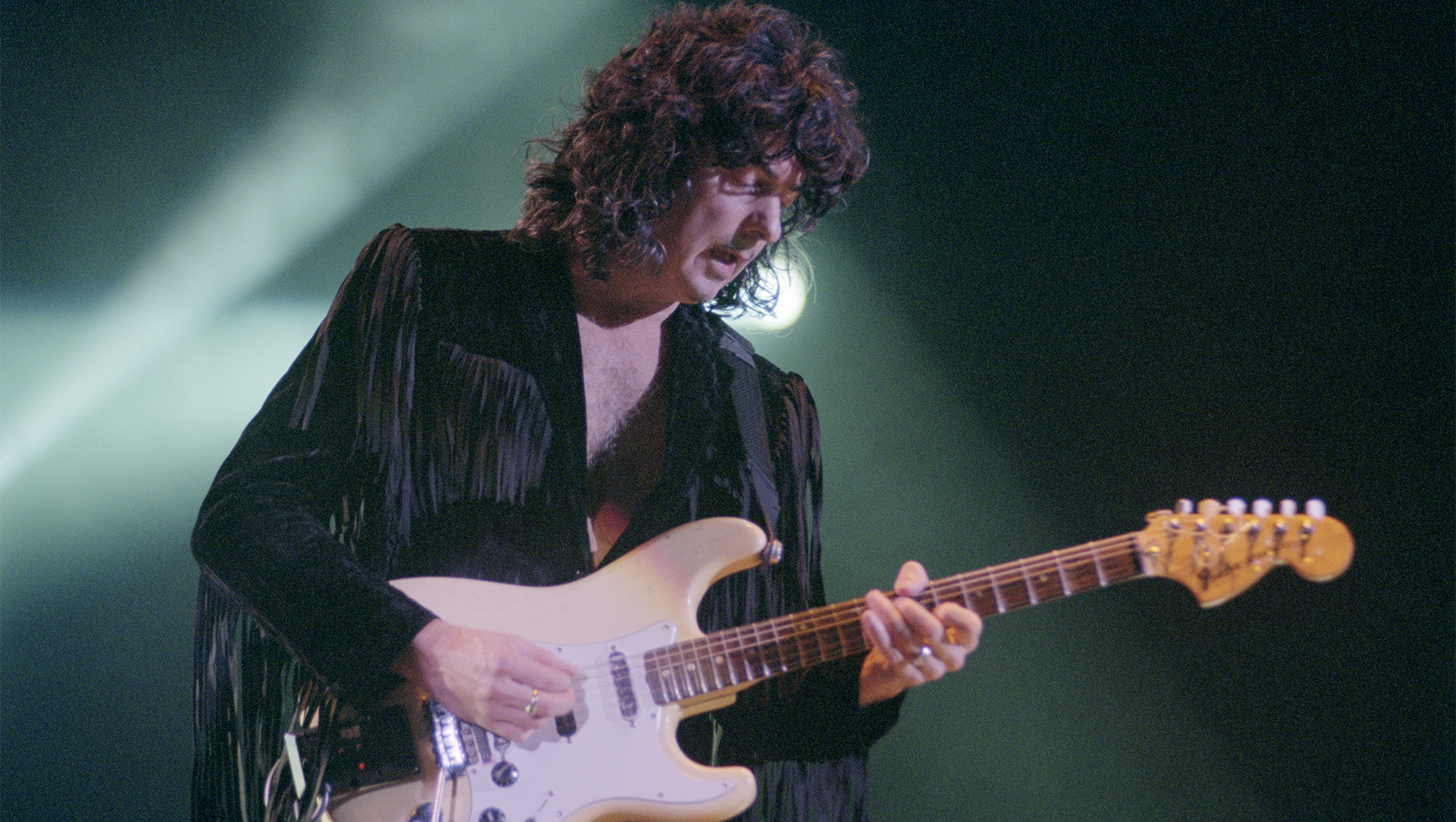“Link Wray does it all, but his style also reminds us how captivating a few well-chosen riffs can be when combined with compelling tone, passion, and musicality”: Link Wray's Rumble (1956–62) is an essential document of ‘less is more’ guitar playing
A spin of this fantastic compilation will make you fall in love with the guitar all over again

When I moved to New York City from California 21 years ago, I was frustrated by how differently I communicated in my new environs. I felt like a fish flopping around in the desert. One very difficult NYC day, I thought I’d console myself by going to Joe’s Busy Corner Deli, in Brooklyn’s Williamsburg neighborhood. Great food, no frills.
“I’d like something like a meatball sandwich,” I told the guy behind the counter. Without looking up, he asked, “Do you want a meatball sandwich or do you want something like a meatball sandwich?” I was chagrined. “Yes,” I muttered, “I want exactly a meatball sandwich.” Why was the language I spoke misunderstood? And why was everyone picking on me?
Months later, as an acclimated New Yorker, I ordered a slice of pizza by holding up one finger and saying, “One.” To which the guy at the counter held up two fingers and said, “Two.” Translation: “I’d like a slice of pizza, please.” “That will be two dollars.” Finally, I was a Roman in Rome.
Twenty years later, I’m back in California, adjusting to the West Coast speaking etiquette, with its extraneous niceties and counter staff who tell me the details of their “real” lives outside their “not real” jobs.
In the geography of guitar playing, Link Wray lives in New York. He plays how a New Yorker speaks – just the facts, please. This is all evident on Rumble (1956–62), a 2023 release on the Acrobat label that contains Link Wray and the Wraymen’s classic performances from the stated period.
Wray’s Wraymen include brothers Vernon and Doug on guitar and drums, respectively, and bassist Shorty Horton. Together, they craft a style of X-rated surf music that had its heyday in the years preceding the Beatles’ arrival in 1963.
Side one opens with the 1956 single I Sez Baby, a raw, Gene Vincent–style blues that offers a hint of what’s to come. It’s followed by Rumble, a classic whose simplicity cuts right to my heart. I’ll never tire of this track, nor of playing open D to open E. I think it’s the greatest rock instrumental ever written.
Up next, The Swag expresses Link’s plodding, monolithic concept that simple and distorted guitar lines are best. Raising the ante, Rawhide finds Link and the group hitting the tune hard and without mercy. It’s followed by the classic Confederate anthem The Dixie-Doodle, which sounds like it’s played on the bottom strings with one finger. It’s primal in its perfection. Next up is Comanche, a song that Wray, whose mother was Shawnee, performs against a drum track that pounds along mercilessly.
After the great Slinky, Ain’t That Lovin’ You Babe and Mary Ann, we turn the
LP over to side two’s Jack the Ripper, a reverb-soaked track on which Link shreds with expressive distortion over a committed and inspired rhythm section. (Link allegedly attained his distorted tone by slicing his speakers with a knife. I tried it once and it only destroyed them.)
On Run Chicken Run, he mixes excellent chicken-picking and muscular rock-chording. Fantastic stuff. Black Widow and Ace of Spades follow, with the aforementioned dripping with reverb and a healthy dose of vibrato that makes me love the guitar all over again. Link detunes his bass string at the song’s close, creating a wonderful murkiness.
Link Wray does it all, but I think the essence of his style reminds us how captivating a few well-chosen riffs can be when combined with compelling tone and played with passion and musicality. In Link Wray’s case, we can enjoy listening as he builds a sublime cathedral with just wood, a hammer, and some nails.
- Link Wray: Rumble (1956-1962) can be purchased on Amazon.
Get The Pick Newsletter
All the latest guitar news, interviews, lessons, reviews, deals and more, direct to your inbox!
Jim Campilongo has 14 critically acclaimed instrumental records available on vinyl, CD and digital download here.
"Get off the stage!" The time Carlos Santana picked a fight with Kiss bassist Gene Simmons and caused one of the guitar world's strangest feuds
“It’s a special kind of moment when you hit that first note of a solo and you literally get nothing.” He’s played with David Bowie and the Cure, but Reeves Gabrels says things don’t always go right, even for the pros











